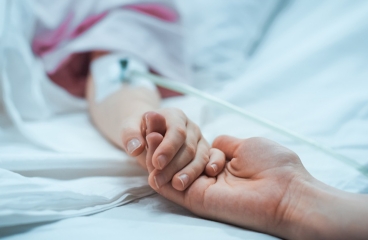Bacterial Meningitis in Children: Care Instructions
Overview

Bacterial meningitis is an infection of the tissues that surround the brain and spinal cord. This serious
infection can injure the brain. It can cause death.
Symptoms usually develop suddenly. A baby may be cranky, cry when moved, and arch their back. A young child
may have a severe headache and refuse to eat. An older child will also have a stiff neck. Fever is common at
all ages. Your child will be in the hospital for testing and treatment.
How long it takes your child to get better depends on how bad the illness is. It can take from just a couple
of weeks to many months. You may notice a change in how your child thinks or concentrates. Most children with
these symptoms get better over time. Be patient. And follow your doctor's instructions.
Follow-up care is a key part of your child's treatment and safety. Be sure to make and go to all
appointments, and call your doctor if your child is having problems. It's also a good idea to know your
child's test results and keep a list of the medicines your child takes.
How can you care for your child at home?
-
If the doctor prescribed antibiotics for your child, give them as directed. Do not stop using them just
because your child feels better. Your child needs to take the full course of antibiotics.
-
Give your child an over-the-counter pain medicine, such as acetaminophen (Tylenol) or ibuprofen (Advil,
Motrin), for pain or fever. Do not use ibuprofen if your child is less than 6 months old unless the doctor
gave you instructions to use it. Be safe with medicines. Read and follow all instructions on the label.
-
Do not give your child two or more pain medicines at the same time unless the doctor told you to. Many
pain medicines have acetaminophen, which is Tylenol. Too much acetaminophen (Tylenol) can be harmful.
-
Make sure your child gets plenty of rest.
-
Be sure that anyone who has come into close contact with your child during this illness calls a doctor if
they feel sick.
When should you call for help?
 Call 911
anytime you think your child may need emergency care. For example, call if:
Call 911
anytime you think your child may need emergency care. For example, call if:
Call your doctor now or seek immediate medical care if:
Watch closely for changes in your child's health, and be sure to contact your doctor if:
Current as of: June 12, 2023
Content Version: 14.0
Care instructions adapted under license by your
healthcare professional. If you have questions about a medical condition or this instruction, always ask
your healthcare professional. Healthwise, Incorporated disclaims any warranty or liability for your use of
this information.